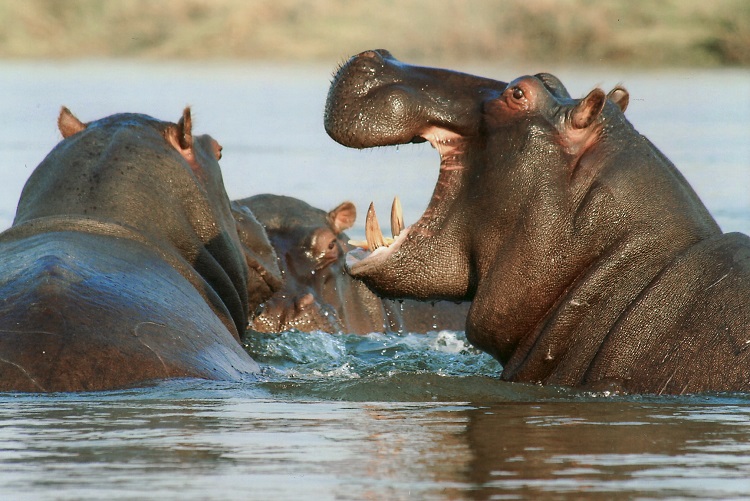Travel statistics indicated that about 30 million visitors come to Africa as a whole. Out of this number, it is estimated that about 15%, that is about 7 million, make this visit purely for tourism reasons, of which wildlife safaris are included.
Needless to say, one of thе mаin rеаsоns why реорlе travel to Аfriсаn sаfаri is tо sее thе аmаzing wildlifе thе соntinеnt hаs.
Вut surеly bеing in suсh сlоsе рrохimity with аnimаls suсh аs liоns, rhinоs, сhееtаhs, аnd hyеnаs аrе а risk аll оf its оwn? Аnd it is nоt just thе big аnimаls thаt роsе а dаngеr. Тhеrе аrе аlsо аll kinds оf vеnоmоus аnd роisоnоus сrеаturеs tо wаtсh оut fоr, suсh аs snаkеs аnd sрidеrs. Sо is рutting оnеsеlf in а situаtiоn whеrе соntасt with thеsе dаngеrоus bеаsts is likеly wоrth thе risk?
Everything in Africa bites, but the safari bug is worst of all.Brian Jackman
SAFETY FROM WILD ANIMALS WHILE ON SAFARI
However, it is essential to prioritize safety and respect for both the animals and yourself during these encounters. In this comprehensive guide, we will explore the dos and don’ts of wildlife encounters to ensure a safe and memorable safari experience.
1. Follow instructions and Guidance of Guides
When on safari, it is crucial to listen and follow the instructions of experienced guides or rangers. They possess valuable knowledge about wildlife behavior, habitat, and safety protocols. Their expertise will help you navigate encounters with wildlife and ensure a safe experience for everyone. Always adhere to their guidance, especially when it comes to maintaining a safe distance from the animals.
2. Keep a Safe Distance between you and Wild Animals
Respecting the personal space of wild animals is paramount. Maintain a safe distance at all times, as specified by your guides. Respect their territory and avoid any actions that may provoke or stress the animals. Remember that even seemingly docile creatures can become unpredictable, so always maintain a respectful distance for your safety and the well-being of the animals.
3. Stay Quiet and Respect Wild Animals’ Space
While observing wildlife, practice quiet and respectful behavior. Keep noise to a minimum, as sudden loud noises or disturbances can startle or upset the animals. Use hushed voices and avoid unnecessary movement or gestures that may draw attention. This will allow you to witness natural behaviors without causing any harm or distress to the animals.
4. Be Flexible and Patient
Wildlife encounters can be unpredictable, and it’s important to be patient and flexible. Animals may not always appear on cue or exhibit the behaviors you expect. Rather than trying to force a specific interaction, embrace the beauty of nature and be open to observing whatever unfolds. Remember, the unexpected moments can often be the most remarkable and memorable.
5. Use Cameras and Binoculars
Binoculars and cameras are essential tools for wildlife observation. Use binoculars to observe animals from a safe distance without encroaching on their territory. Cameras allow you to capture stunning photographs while maintaining a respectful distance. Avoid using flash photography, as it can startle or irritate the animals. Remember to keep your camera sound off to avoid disturbing the wildlife.
SAFETY IN THE AFRICAN WILDERNESS
IMPORTANT TIP
Your guide will always do a safety talk with you, whether your game viewing is to be done from a vehicle, or on foot.
Wildlife is potentially dangerous, but as long as you adhere to what you qualified guide tells you, there is very little to worry about.

6. Do Not Chase of Startle Wild Animals
One of the most important rules for wildlife encounters is never to approach or chase animals. Wild animals should never be treated like domesticated pets. Do not attempt to touch, feed, or provoke them in any way. Respect their natural instincts and maintain a safe distance to ensure both your safety and the well-being of the animals.
7. Do not feed Wild Animals
Feeding wild animals is strictly prohibited. Human food can disrupt their natural diet and behavior, leading to dependency on humans for sustenance. It can also create an unnatural association between humans and food, increasing the risk of dangerous encounters in the future. Do not throw or leave food out for animals, and always dispose of your trash responsibly.
8. Do not Make Noise. Avoid Sudden Movements
Sudden movements or loud noises can startle and disturb wildlife, potentially leading to aggressive behavior or defensive responses. Avoid making sudden gestures, running, or shouting. Stay calm, composed, and move slowly and quietly when observing animals. This will minimize the risk of agitating or alarming them.
9. Do Not Litter or Leave Behind Traceable Markers
Respect the environment and wildlife by not littering or leaving any traceable markers behind. Keep the wilderness pristine by properly disposing of trash in designated bins or taking it back with you. Avoid leaving any non-biodegradable items that may harm the ecosystem or endanger the animals. Leave only footprints and take away memories, photographs, and a deep appreciation for the natural world.
Conclusion on Safety Measures When Close to Wild Animals
Encountering wildlife on a safari is a remarkable and privileged experience. By following the dos and don’ts outlined in this comprehensive guide, you can ensure a safe and respectful encounter with the extraordinary creatures of Africa.
Respect the guidance of experienced guides, maintain a safe distance, observe quietly, and be patient and flexible. Avoid approaching, chasing, or feeding animals, and refrain from making sudden movements or loud noises. Let your safari experience be a harmonious coexistence with the natural world, leaving a positive impact on both the wildlife and their habitats.

